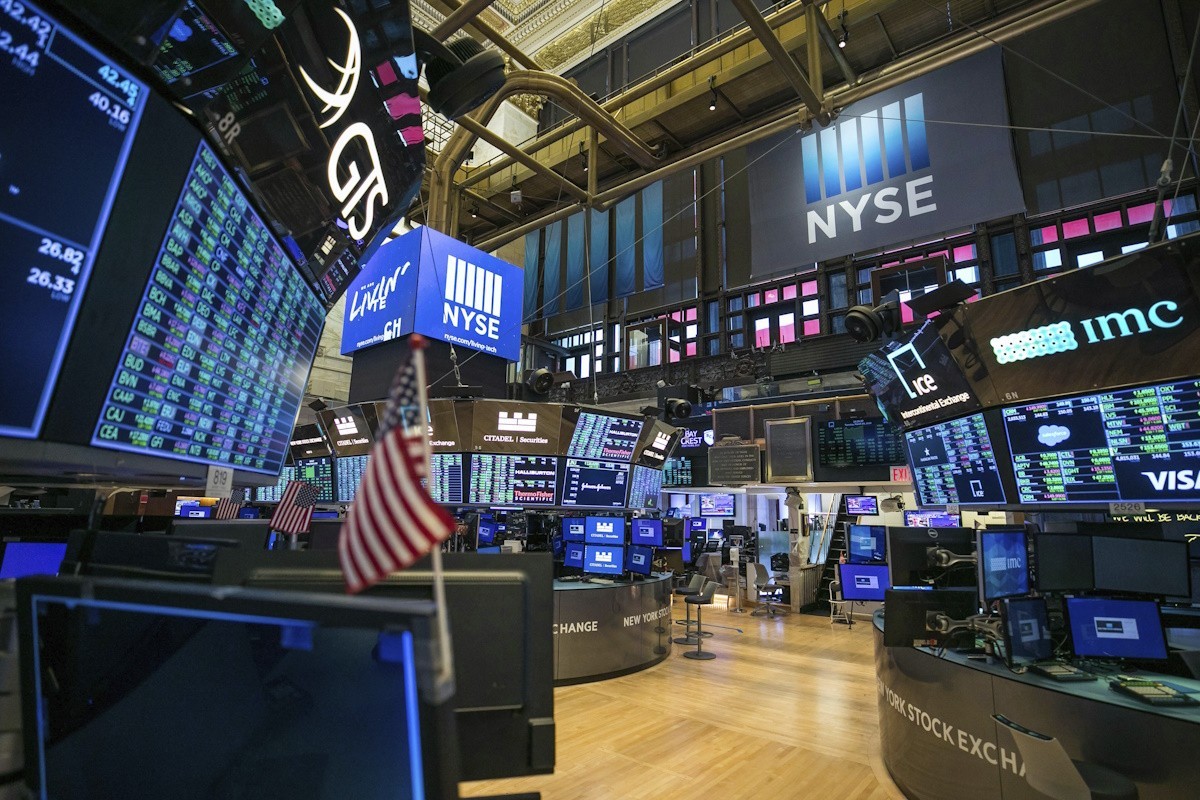Is this the peak of the stock market?

The third season of the show “The Bear” combines family conflicts with the challenges faced by upscale restaurants. Amidst the soaring market highs, as investors eagerly anticipate Dow 40000, this column delves into a distinct type of dysfunctional creature. Is the market bear dead, or is it poised to catch us off guard?
An American equity strategist shared an interesting anecdote about a Japanese portfolio manager seeking stock recommendations back in July 1987. The strategist’s model relied on a unique survey of investor sentiment, but unfortunately, it never yielded the desired results. However, he recited a long list of stocks. The portfolio manager then requested if he could please place an order for 20,000 shares of each. In late August, the Dow Jones Industrial Average reached its highest point at 2722, only to experience a significant decline of 22.6% on October 19.
In 1999, a friend of mine had the role of portfolio manager for a significant growth-stock fund. He mentioned purchasing shares of Yahoo, Cisco, F5 Networks, Infosys, and other companies on a daily basis due to the consistent influx of funds into his investment portfolio. The Nasdaq index reached its highest point on March 10, 2000. With the outflow of money, he found himself in the position of having to sell his assets on a daily basis. At the end of the year, Nasdaq experienced a decline of over 50%.
I encountered Cathie Wood while she was organizing documents for her “disruptive innovation” funds, with the aim of revolutionizing the way the world operates. Her ARK Innovation exchange-traded fund, ARKK, was launched in October 2014 and has a management fee of 0.75%. In 2020, there was a significant increase of 153% as a result of the influx of stimulus money, which led to a surge in purchasing. In February 2021, ARKK reached its highest point with $28 billion in assets. Since then, its net asset value has decreased by 70%, despite the strong performance of the overall market, particularly in the technology sector. Morningstar recently reported that Ms. Wood’s Ark Invest funds have resulted in a loss of over $14 billion in wealth. One of my preferred sayings on Wall Street is, “Do not confuse a bull market with intelligence.”
During every bull run, investors are often drawn in by the stock momentum, only to face the consequences when the buying eventually comes to a halt. This pattern, which I refer to as momos, tends to result in investors getting burned. Since 2009, apart from a few short periods of decline, cash has not been a favorable investment. That had some logical reasoning during the period of zero interest rates. But now, considering the current situation of increased inflation and short rates surpassing 5%? Unclear. Perhaps investors are already considering the potential impact of another Donald Trump presidency focused on deregulation and economic growth, while overlooking the potential drawbacks of his pro-tariff stance. Is the bear deceased, or does it possess a lengthy fuse?
Attempting to predict stock markets is a futile endeavor. My Series 7 test for General Securities Representative Qualification expired a while back, so I won’t be able to provide you with any investment advice. However, there are indications of concern.
Are there no more buyers left? Occasionally, certain factors can cause them to become wary: unexpected shifts in oil prices, outbreaks of viruses, or the collapse of banks. However, at times they may experience a complete breakdown due to fatigue. According to reports, over 40% of households currently own stocks, which is a higher percentage compared to 2000. In 2010, the percentage was 20. Market indicators also suggest that asset managers are fully invested. Who remains as potential buyers?
The state of market breadth is a cause for concern. The market peak in 1973 was influenced by the overvalued Nifty Fifty stocks, which consisted of companies like IBM, Coca-Cola, GE, Polaroid, and Xerox. Is it really fifty? Now we have the Magnificent Seven: Alphabet, Amazon, Apple, Meta, Microsoft, Nvidia, and Tesla. Is it seven? Nvidia’s impressive performance in the first half of the year can be attributed to the exaggerated excitement surrounding artificial intelligence, which surpassed even the most optimistic expectations. Another quarter was contributed by Amazon, Meta, Microsoft, and Eli Lilly. Perhaps overweight bulls require Mount Kilimanjaro.
Stock values seem disconnected from the real world. In March 2000, the Warren Buffett indicator, which measures the ratio between total stock-market value and gross domestic product, stood at 138%. The current figure stands at 196%. Definitely not indicating a recommendation to purchase. And Bitcoin, my preferred indicator of market volatility, has experienced a decline of approximately 20% since March. Is it a deceased canary?
“Don’t fret, be content,” the optimists sing. Inflation has been successfully controlled, and it is expected that the Federal Reserve will lower interest rates. However, the reason for those cuts may not be well-received by investors. We are witnessing significant declines in earnings from companies such as Nike, Walgreens, Lululemon, Delta, and Wells Fargo. When the economy experiences a slowdown, it can have a ripple effect on earnings and cause stock prices to plummet. In addition, the banks’ exposure to commercial real estate is quite concerning, as buildings are being sold at significant discounts on a regular basis. This is now spreading to rental buildings, and there are indications of an excess of private housing. Inventory in Denver has experienced a significant increase of almost 37%. Indeed, markets often face uncertainties and bull markets can surpass expectations, yet there are instances when the worst-case scenarios become a reality. Recessions are quite appealing to bears.
Even discussing the bearish market is optimistic. Bull runs come to a close when there is widespread belief among the masses. Another saying I quite like is, “Taking a profit has always been a safe bet.” In the future, cash will regain its prominence. I tend to gravitate towards purchasing stocks when they are widely disliked.








